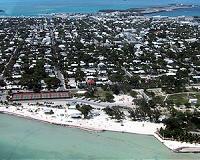 |
Rio De Janeiro (UPI) Jun 18, 2010 Brazil seems to be pressing ahead with plans for deep-water exploration of pre-salt oil reserves, even after the worst environmental disaster in the Gulf of Mexico. Discovered in 2006 and still in the early stages of exploration, the reservoir beneath a 7,217-foot crust of salt contains anywhere from 50 billion barrels to 100 billion barrels of proven reserves. "With the development of the pre-salt reservoir, we believe Brazil will gain its place among the top 10 oil producers in the world. We have already even been formally invited to join OPEC," said Haroldo Lima, the director general of the federal National Oil Agency (ANP in Portuguese), BBC reports. But the pre-salt reserves are located under 7,210 feet of water, compared with BP's Deepwater Horizon rig at 4,920 feet of water. Prior to the discovery of the pre-salt reserves, the deepest level from which Petrobras had extracted oil was about 5,905 feet, the French newspaper Le Monde reports. "At that depth, with such high pressure, we cannot claim to be ready for any eventuality," Segen Estefen, the head of a university laboratory that works with Petrobras told the newspaper. Even with its experience as the largest producer of oil in deep-water provinces in the world, Petrobras' exploration of the pre-salt fields poses risks and challenges: The pipes need to be reinforced because of the underwater pressure; the sediment over the salt is unstable, making it difficult to anchor the oil rigs; and the high carbon dioxide content of the fields causes corrosion, so nickel-enriched alloys become necessary. "We are talking about a complex and aggressive environment: There's salt, there's corrosion, extreme pressures, weather can change, waves of 33 feet can appear from nowhere. ... There's no engineering solution that could be 100 percent safe," said Claudio Sampaio, architect for the naval engineering department at the University of Sao Paulo. In its role as oil industry regulator, however, Brazil's ANP is known for keeping a close watch on operators. ANP's Lima referred to the Gulf of Mexico accident as a "general alert" to all countries with deep-water exploration off their coasts. "Is it possible to drill in such challenging conditions with the confidence that everything is going to work fine? That's a very important question that we had to ask ourselves after the accident in the Gulf of Mexico," he said. But Petrobras told parliament in May that in the event of a accident on the most remote offshore fields, its rescue teams were prepared to intervene within eight hours, Le Monde reports.
Share This Article With Planet Earth
Related Links Powering The World in the 21st Century at Energy-Daily.com
 Oil spill threatens, but the party goes on in famed Key West
Oil spill threatens, but the party goes on in famed Key WestKey West, Florida (AFP) June 18, 2010 Sunkissed by Florida's generous rays, Hill and Robert Causey are ready to leave the beach and head to Key West's bars, untroubled by the nearby Gulf of Mexico oil spill. On Duval Street, in the heart of the city, shops are offering scuba diving trips to local coral reefs, but also t-shirts cursing BP for the disastrous spill that threatens livelihoods in this tourism-dependent city. Robe ... read more |
|
| The content herein, unless otherwise known to be public domain, are Copyright 1995-2010 - SpaceDaily. AFP and UPI Wire Stories are copyright Agence France-Presse and United Press International. ESA Portal Reports are copyright European Space Agency. All NASA sourced material is public domain. Additional copyrights may apply in whole or part to other bona fide parties. Advertising does not imply endorsement,agreement or approval of any opinions, statements or information provided by SpaceDaily on any Web page published or hosted by SpaceDaily. Privacy Statement |